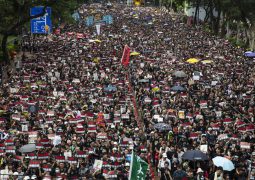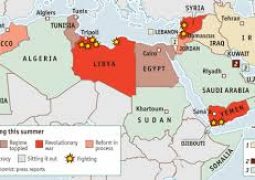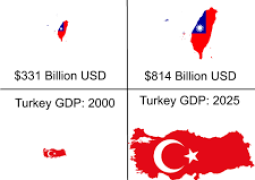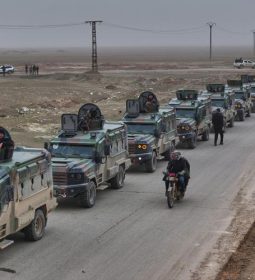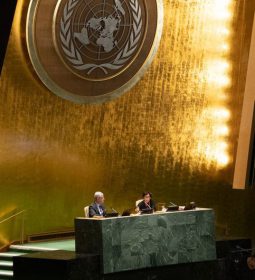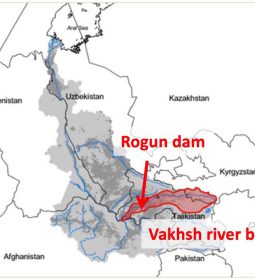Oil prices to rise after Houthi attacks in the Red Sea shipping
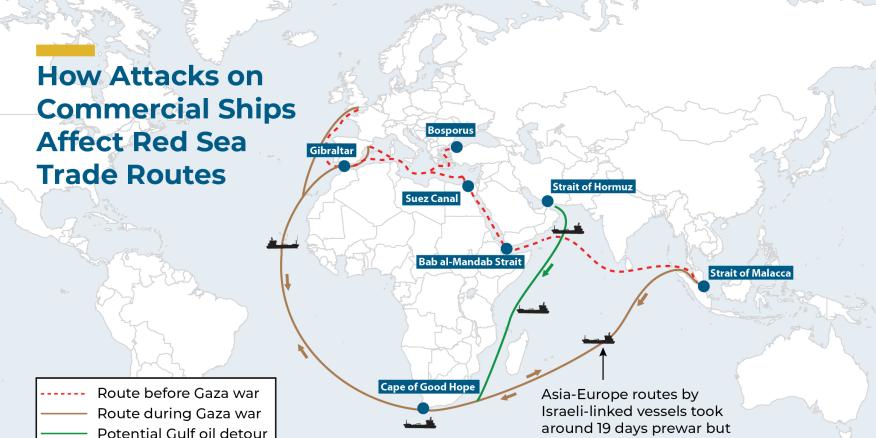
Hijackings, missile strikes and drone assaults on ships by Yemen’s Houthi rebels have forced AP Moller-Maersk, a Danish shipping and logistics giant, and Hapag-Lloyd, a German shipping and container transportation company, to pause shipments through the Red Sea.
Their decisions, announced on Friday, are a sign that major corporations are taking the security situation in the Red Sea increasingly seriously. But the consequences might also be felt by the world’s oil markets and the cost of energy that consumers need to bear – though the extent of any disruption might depend on how major global players respond to the looming crisis, said experts.

Maersk said in a statement that its decision stemmed from the company’s concerns about the “highly escalated security situation in the southern Red Sea and Gulf of Aden” over the past few weeks. Recent missile and drone attacks on commercial vessels represent a “significant threat to the safety and security of seafarers,” it said.
Maersk and Hapag-Lloyd together operate almost a quarter of the world’s shipping fleet.
The growing insecurity in the Red Sea is a result of Israel’s war on Gaza which began on October 7. Since Israel’s bombardment of the Palestinian enclave began 10 weeks ago, the Houthis have attacked at least eight ships in the Bab el-Mandeb, the strait separating Eritrea and Djibouti on one side from the Arabian Peninsula on the other.
Only 29km (18 miles) wide at its narrowest point, the Bab el-Mandeb is a vital route for international trade –10 percent of the world’s seaborne crude flows through this strait – meaning any disruptions become a global problem.
The Houthis have been targeting vessels which are at least partly owned by Israelis or by anyone shipping cargo to Israel via the Red Sea. In November, the group said it had taken over the Galaxy Leader cargo ship, which it claimed was Israeli owned. But Israel described it as a British-owned and Japanese-operated cargo vessel with no Israeli nationals on board. That ship was headed for India.
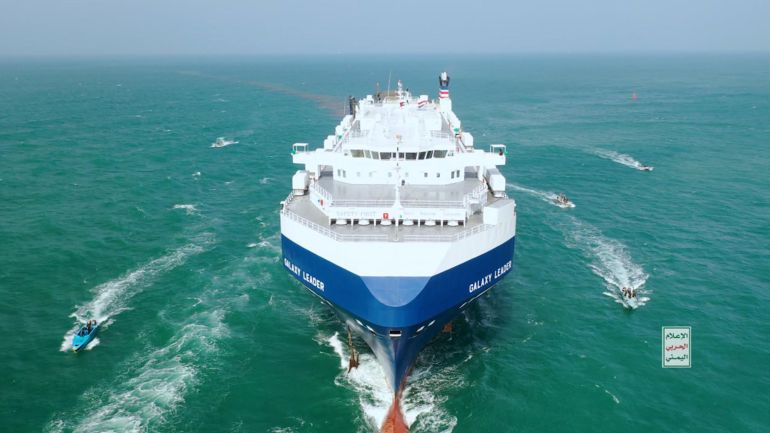
The rebels, who have been in control of large parts of Yemen since 2014, have promised to continue carrying out such attacks until a full ceasefire is implemented in Gaza. This is part of a strategy aimed at raising the costs for the US and others of supporting Israel in various ways.
Such hostilities also serve to demonstrate that the Houthis are a force with staying power in Yemen and an increasingly bold and determined part of the so-called “axis of resistance”. This also includes Hamas in Gaza, Lebanon’s Hezbollah, the Syrian government and various Syrian and Iraqi non-state actors backed by Tehran.

Oil market ‘taking more notice’
There is little to suggest that the Houthi attacks will stop any time soon. What does that mean for the oil market?

Colby Connelly, a senior analyst at Energy Intelligence, a Washington-based energy information company, told Al Jazeera that there has been a “fairly limited” but “not intangible” impact of these attacks on the oil market.
“As these attacks have gone on, markets have taken more and more notice, so crude prices did end the week higher than they’ve been for the last couple of days or so, especially as these attacks don’t look like they’re going to stop until there’s a stronger effort to actually stop them,” he commented.
As tensions heighten, it is difficult to tell where this crisis in the Red Sea is headed. “If the Bab el-Mandeb is constrained to oil traffic due to tensions in the region there is a good chance the price of oil to some places will go up due to a crisis and war premium on insurance and the products themselves,” said Paul Sullivan, a non-resident senior fellow at the Atlantic Council’s Global Energy Center, in an interview with Al Jazeera.
No discernible pattern to attacks
One of the factors which makes this situation challenging is that the Houthi missile and drone attacks do not necessarily follow a discernible pattern.
The Houthis are acting in a way that makes it more difficult to determine what they’re going to do next as they do more,” said Connelly.
If the Houthis were to try to close the Bab el-Mandeb Strait, it “would have a massive impact” because of the risks in shipping insurance, the costs of alternative routes and the potential for supply disruption, among other factors, said Connelly. “But I don’t think that’s something they have the capability to do and something like that would be certain to draw a very stern response, very quickly.”
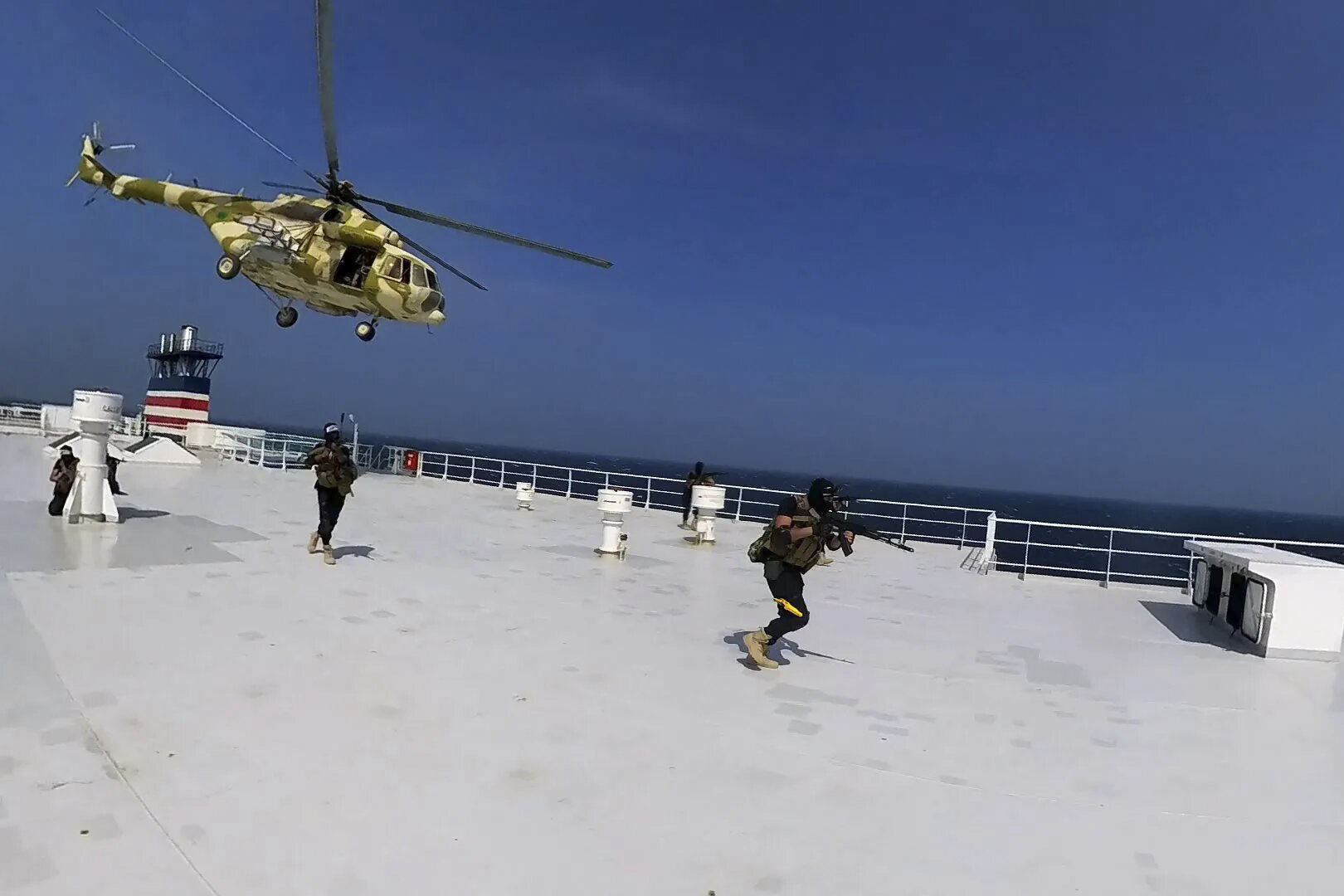
Indeed, the Houthis’ disruptive actions in the Red Sea have much potential to result in significantly greater pressure on them from players such as China, India, the Gulf Cooperation Council states, Iran and Western powers.
“Because of the negative impacts on its economy, China is against any interruption to global trade, especially in routes as strategic as the Bab el-Mandeb Strait and the Suez Canal. Hence, China and Iran — at China’s request — may pressure the Houthis to reduce their hostile activities in the Red Sea,” Amin Mohseni, a senior lecturer in economics at American University, told Al Jazeera.
“It is important to note that the US, the UK, China, Germany, Spain, Italy, France, Saudi Arabia and Japan already have military bases of some sort in Djibouti, limiting the Houthis’ hostile activities in the Red Sea in the long run. Russia and India are also keen on setting up their own military bases in the Red Sea,” he added.
Could China, India step in?
Sullivan said he also believes that some of these global players could step up their presence in this part of the world in order to ensure that shipping is not interrupted by any actors in Yemen. “I would not be surprised to see China and possibly even India send more assets to the region to protect their oil. NATO could beef up task forces that could focus on freedom and security of navigation. The US will get more involved as the tensions ratchet up,” Sullivan said.
Nonetheless, as Israel’s war on Gaza rages on with the Palestinian death toll having reached more than 18,700, the Houthis will likely stick fast to their desire to influence the conflict as much as possible.
Continued carnage in Gaza will likely guarantee that the Red Sea will continue facing heightened threats, requiring the shipping industry and the world at large to prepare for new economic risks.
- Previous How Hindu nationalism is threatening to erase India’s history of coexistence
- Next Malaysia: Bring back face masks, physical distancing



